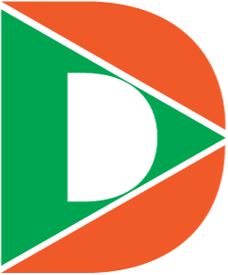What is the best acne removal treatment?
Understanding Acne:
Acne is a common skin condition that affects millions of people worldwide. It occurs when hair follicles become clogged with dead skin cells and oil, creating pimples, blackheads, whiteheads, and sometimes cysts. The main factors contributing to acne removal treatment include:
Hormonal fluctuations: Androgens, hormones mainly associated with males but present in everyone, stimulate increased oil production, making the skin more prone to breakouts.
Bacterial overgrowth: Propionibacterium acnes (P. acnes), a naturally occurring bacterium, multiplies in clogged pores, leading to inflammation and redness. If you are looking for some genuine acne treatment, then try accutane tablets
Excess oil production: Sebaceous glands produce oil to lubricate the skin, but overproduction can clog pores and worsen acne.
Genetics: Family history can play a role in your susceptibility to acne.
Treatment Options:
There are a wide range of treatment options available, categorized into topical, oral, and in-office procedures.you should also buy isotretinoin online. Choosing the right one for you requires consultation with a dermatologist who can assess your individual needs:
Topical Treatments:
Over-the-counter (OTC) products: These are readily available and often the first line of defense. They come in various forms, like gels, creams, and lotions, and contain ingredients like:
Benzoyl peroxide: Kills P. acnes bacteria and helps prevent clogged pores.
Salicylic acid: Gently exfoliates dead skin cells to prevent them from clogging pores.
Adapalene or tretinoin (retinoids): Normalize skin cell turnover and unclog pores.
Prescription topical medications: For more severe acne, your dermatologist may prescribe stronger topical medications like:
Oral Medications:

Antibiotics: For moderate to severe acne, oral antibiotics may be prescribed alongside topical treatments.
Hormonal therapy: Birth control pills or other hormonal therapies can be helpful for women with acne related to hormonal fluctuations.
Isotretinoin: A powerful oral medication for severe, nodular acne. It requires close monitoring by a dermatologist due to potential side effects.
In-Office Procedures:
Chemical peels: Exfoliate the skin to reduce the depth of scars and improve acne-prone skin.
Microneedling: Creates tiny punctures in the skin to stimulate collagen production and improve scar texture.
Laser therapy: Various lasers target different aspects of scarring, like redness or uneven texture.
Lifestyle Modifications:
While medication plays a crucial role, managing your lifestyle can significantly impact your acne.
Diet: Limit sugary drinks and processed foods; focus on whole grains, fruits, vegetables, and lean protein.
Hydration: Drink plenty of water to flush out toxins and keep your skin healthy.
Stress management: Practice relaxation techniques like yoga, meditation, or deep breathing.
Sleep: Aim for 7-8 hours of sleep per night.
Gentle skincare: Wash your face twice daily with a gentle cleanser and avoid harsh scrubbing.
Sun protection: Wear sunscreen daily to protect your skin from sun damage, which can worsen acne.
Understanding Your Acne Type:
Accurately identifying your acne type is crucial for choosing the most effective treatment approach. Common types include:
Inflammatory Acne: Characterized by pimples, papules, and pustules due to inflammation. Effectively treated with benzoyl peroxide, antibiotics, and retinoids.
Non-inflammatory Acne: Presents as blackheads and whiteheads due to clogged pores. Salicylic acid and retinoids work well for this type.
Hormonal Acne: Often associated with hormonal fluctuations, primarily in women. Birth control pills or spironolactone can be helpful alongside topical treatments.
Cystic Acne: Deep, painful nodules beneath the skin require a comprehensive approach with oral medications like isotretinoin alongside topical treatments.
Holistic Approach Beyond Medication:
While medication plays a significant role, incorporating certain lifestyle adjustments can synergistically enhance your treatment results:
Dietary Tweaks: Research suggests a link between dairy consumption and worsened acne in some individuals. Experiment with eliminating or reducing dairy in your diet to see if it impacts your skin.
Gut Health: Emerging research suggests a connection between the gut microbiome and skin health. Probiotics and fermented foods may support gut health and potentially improve acne.
Stress Management: Chronic stress can aggravate acne. Relaxation techniques like yoga, meditation, or deep breathing can help manage stress and its impact on your skin.
Gentle Cleansing and Exfoliation: Avoid harsh scrubs and opt for gentle cleansers and exfoliants suitable for your skin type. Over-exfoliating can irritate the skin and worsen acne.
Non-comedogenic Makeup: Choose makeup labeled as non-comedogenic, meaning it won’t clog pores and exacerbate breakouts.
Advanced Treatment Options:
For stubborn acne or specific concerns, your dermatologist may recommend advanced procedures like:
Light therapy: Blue light therapy targets P. acnes bacteria and reduces inflammation.
Photodynamic therapy: Uses light and a photosensitizing medication to target and destroy acne bacteria.
Extraction: Professional extraction of deeply clogged pores can be beneficial for certain types of acne.
Remember:
Acne removal treatment progress varies for each individual. Be patient and consistent with your plan, adhering to your dermatologist’s guidance.
Don’t be afraid to discuss any concerns or side effects you experience with your dermatologist. Adjustments may be needed to personalize your treatment plan.
Celebrate progress, however small, as it signifies your journey towards clearer skin.
By delving deeper into these additional points and exploring advanced options alongside personalized guidance from your dermatologist, you can equip yourself with comprehensive knowledge and confidence to tackle your acne removal treatment and achieve clearer, healthier skin.
I hope this expanded information adds further value to your journey towards radiant skin! Feel free to ask any further questions you may have.
Azelaic acid: Reduces inflammation and pigmentation.
Corticosteroids: Reduce inflammation and swelling in severe cases.

As a DIGITALTECHSIDE author, the majority of our articles have been focused on technology, blogging, business, lifestyle, social media, web design and development, e-commerce, money, health, education, entertainment, SEO, travel, and sports.
Contact us at digitaltechside@gmail.com if you have questions of anything.




